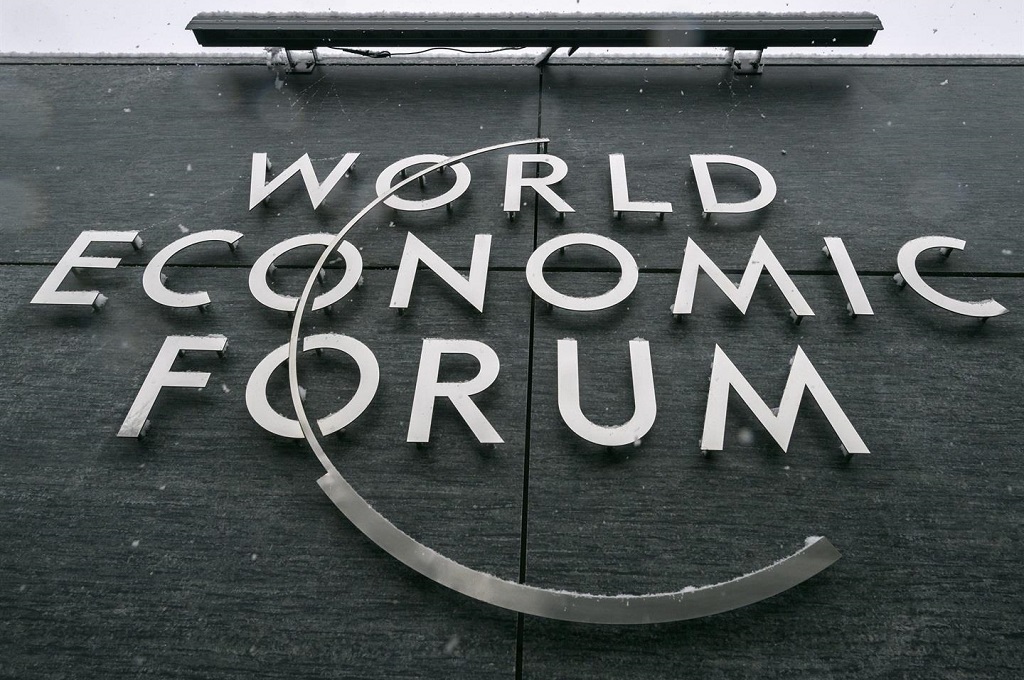
The World Economic Forum meetings are taking place this week
Fabrice Coffrini/AFP via Getty Images
The global economy is expected to weaken in 2024 as headwinds and volatility on the global stage persist and fragmentation poses a threat to global interconnectivity and trade. These are top of mind for policymakers and business leaders meeting in Davos, Switzerland, at the World Economic Forum (WEF) that started on Monday.
Despite easing global inflation, the global economy is likely to be weighed by tight financial conditions, social strains, continued geopolitical conflicts and increasing fragmentation.
A WEF report found that the majority of leading public and private sector chief economists surveyed expect the pace of geoeconomic fragmentation to accelerate this year. Inequality is expected to increase and the divide between the global north and south is set to widen even further in the next three years.
The majority of respondents say fragmentation will stoke volatility in the global economy and stock markets. There appears to be an equally strong consensus that recent geopolitical developments will increase localisation and strengthen geoeconomic blocs.
In an interview, South Africa’s finance minister, Enoch Godogwana, said “trust issues” among countries emerged from protectionism, which was a move away from trade conventions of the World Trade Organisation (WTO), and the intensity of conflicts.
READ: BRICS leaders issue call to global north to create fair markets for competition
The WEF report stated that growing global fragmentation would be closely intertwined with the resurgence of industrial policies. About two-thirds of respondents expect these policies to enable the emergence of new economic growth hotspots and vital new industries, with the majority warning of rising fiscal strains and divergence between higher- and lower-income economies.
“Chief economists are almost unanimous in expecting these policies to remain largely uncoordinated between countries, with a different mix of defensive and enabling approaches in high- and low-income economies.”
Global economy
The uncertainty brought on by the onset of the Covid-19 pandemic and its restrictions on trade and movement has punctuated the past three years. Russia’s war in Ukraine hugely impacted food and fuel prices in 2022/23, which left most South Africans reeling from the increased cost of living. Israel’s war in Gaza has increased geopolitical risks in the Middle East region.
Experts are pessimistic about growth levels this year because the uncertainty that has impacted the global economy and markets is expected to continue clouding the outlook over the near term.
Fifty-six percent of chief economists surveyed by the WEF expect the world economy to weaken this year amid protracted weakness in global economic conditions and widening regional divergence, according to the January 2024 WEF Chief Economists Outlook released on Monday.
While economic activity is expected to remain buoyant in South and East Asia and the Pacific, economists were less optimistic about the performance of the world’s second-largest economy, China. Only 69% of those surveyed expect China to record moderate economic growth after “weak consumption, lower industrial production and property market concerns weighed on the prospects of a stronger rebound”.
READ: We shouldn’t have the same level of load shedding in 2024 as we did last year
Outlook for the US, Middle East and north Africa has weakened when compared to the last edition of the chief economists survey in September 2023. Six out of ten respondents now expect moderate or stronger growth this year for this region, while there’s less glimmer of hope for Europe as it is projected to vacillate between weak or very weak growth in 2024.
Moderate growth is broadly anticipated for Sub-Saharan Africa, which includes South Africa. Local economists have said the domestic economy should fare better in 2024 compared to the less than one percent growth forecast for 2023. This as less load shedding is expected compared to 2023, which saw the worst levels of power outages in the country.
Nedbank economist Isaac Matshego said industries like mining would still be on the back foot.
Despite the improvement in energy availability, power shortages and logistical inefficiencies at Transnet remain binding constraints for the mining industry.
On the positive side, advances in artificial intelligence will increase the efficiency of output levels; however, these advances may lead to increased risks for disinformation and cyber attacks.






Recent Comments